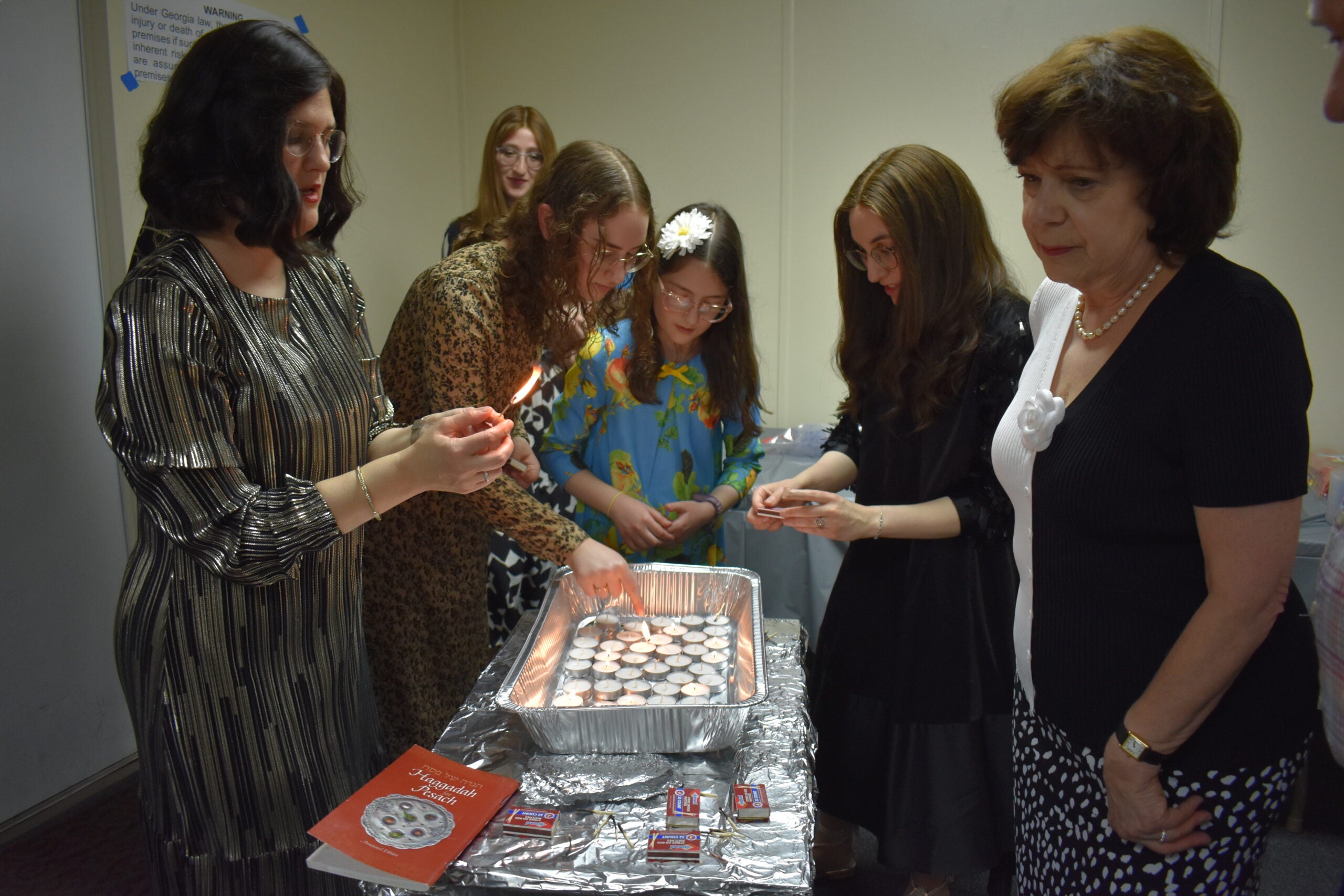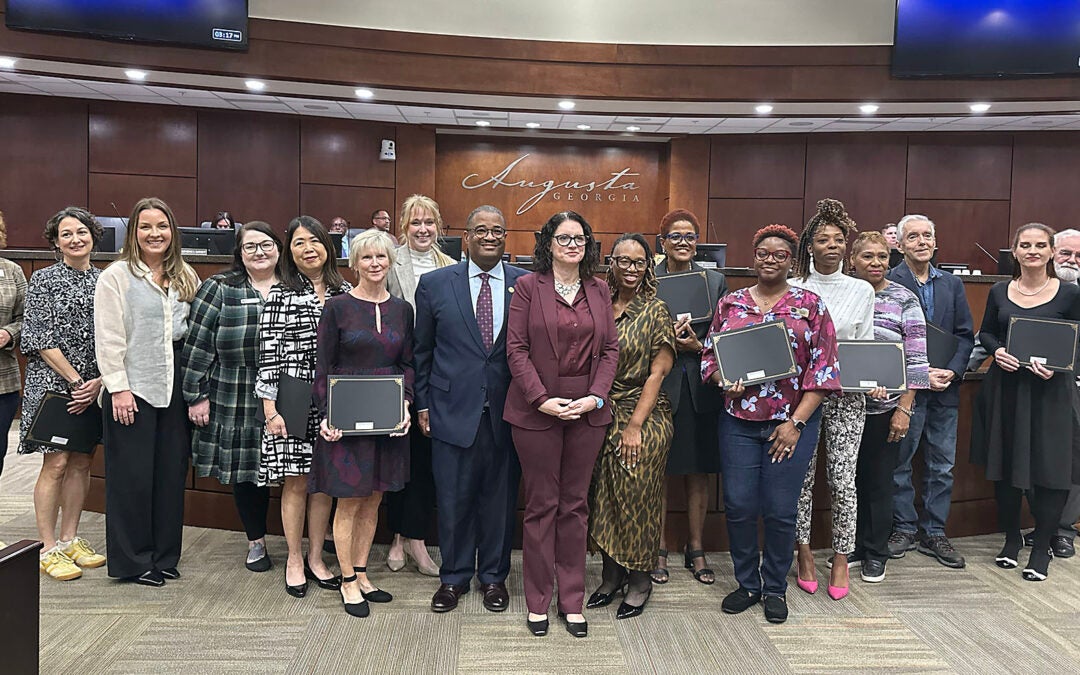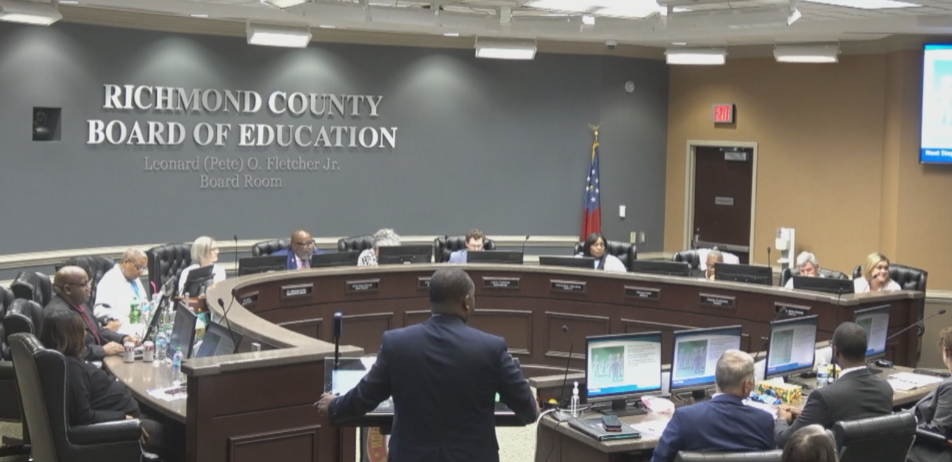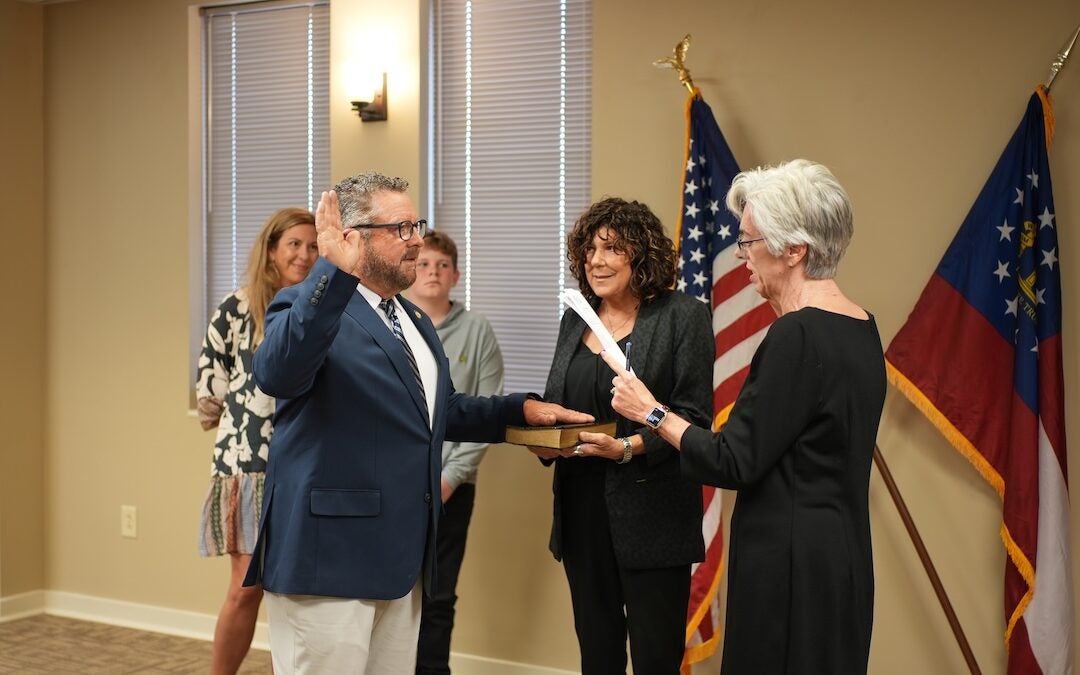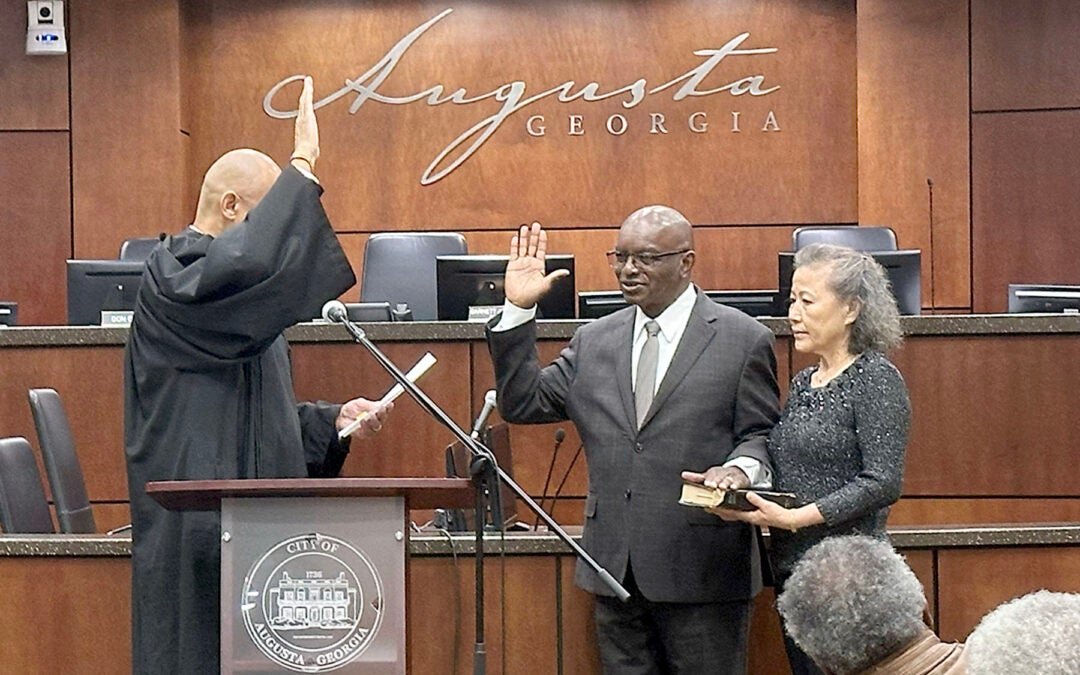To honor Passover, the Chabad of Augusta hosted a community Passover (Pesach) Seder meal on Wednesday, April 5, where all were invited to attend regardless of their background, ethnicity or level of observance.
Attendees ranged from various ethnic backgrounds and nationalities, and they came from all over, including: Canada, New York, Brazil, Augusta, the Bahamas, China, Australia, Germany, Ukraine, Chicago, Atlanta and many other areas. Despite the varying origins of guests, many were able to sing traditional songs, and pray together in Hebrew throughout the ceremony.
“Jewish people are not a race; there are Jews everywhere. There are Jews of multiple races, multiple backgrounds and nationalities. It’s a faith – a relationship with God, said Rabbi Zalman Fischer, who led the Seder and is the spiritual leader of the Chabad of Augusta. “We all observe the same faith … the world is a small place, and we can travel and connect.”
The Seder meal is known as one of the most beloved rituals, where children are encouraged to pray and ask questions in order to learn and explore their faith. Inquiries are answered and posed throughout the guided feast that involves heavily symbolic foods. Each food included in the feast has a significant meaning which encourages the Rabbi to retell the story of Exodus, and how God led the Jewish people out of slavery.
MORE: Club Car reassessing its long tradition of golf cart displays during Masters Week
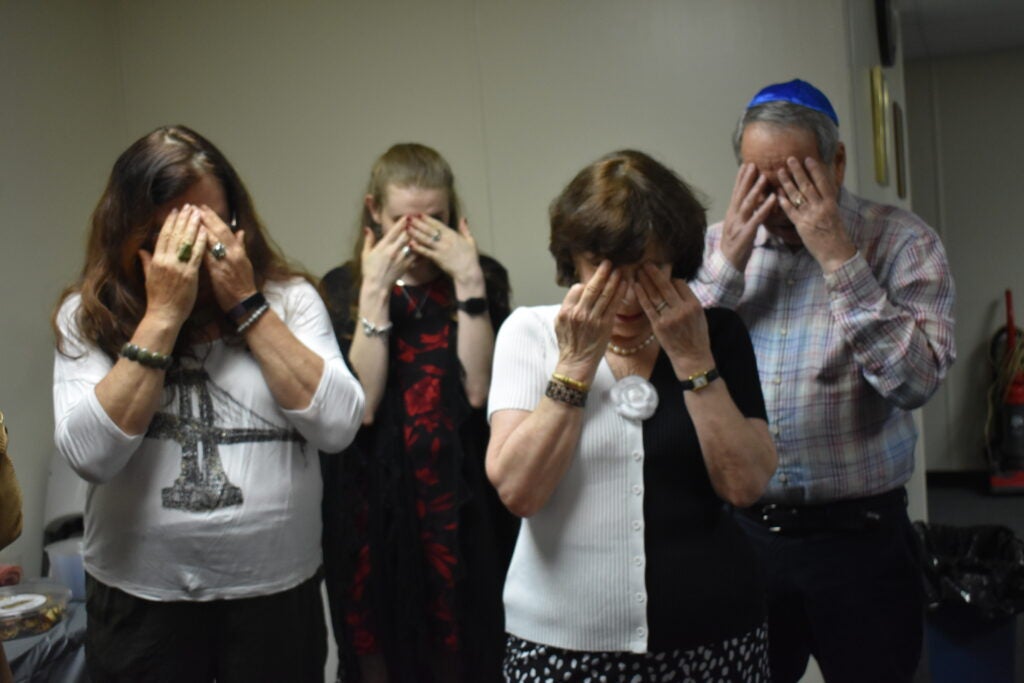
With participants ranging from infancy to older adulthood, the ceremony served as a bridge between the current and future generations of Augusta Jews.
“Passover is the beginning of the birth of our nation and our people. This is when it all began, and we’ve been remembering it for 3,350 years, and every generation makes sure to pass the tradition onto the next generation,” said Fischer. “Tradition is very important for us … you pass on your values to your children.”
The Seder essentially symbolizes the Jews’ final step toward redemption from slavery and the birth of a Jewish nation, but the most important part of Passover for all is the notion of remembering the significance of freedom. For the Jewish, their faith annually reminds them of their people’s past persecution and suffering, and the gift that is freedom.
“My hope is that people can take the inspiration, including myself, of the message of freedom. Freedom means one is free to be who they’re meant to be, because God created us in a way that it’s challenging for us to be who we are. We have all these many distractions, many of which are self-imposed, and then we end up not being who we could be,” said Fischer.
Two of the bigger aspects of the Passover meal are the assembly of the Seder plate, which contains various symbols to honor and remember the struggles of Jewish slaves in Egypt, and the consumption of four cups of wine. Jews drink four cups of wine, or grape juice for those unable to partake, to encourage the asking and answering of four questions, which are typically recited to highlight the stark differences between the Seder meal and all other dinners.
“It also represents freedom; wine is a symbolic drink of prestige and freedom,” said Fischer. “Moses and the Torah use four different terminologies when describing the process of taking the Jews out of Egypt, so when the Seder was formulated the four cups of wine represent the four stages or dimensions of freedom. It’s almost like a synthesis or merging of the spiritual with the physical.”
MORE: Augusta National’s footprint could soon expand
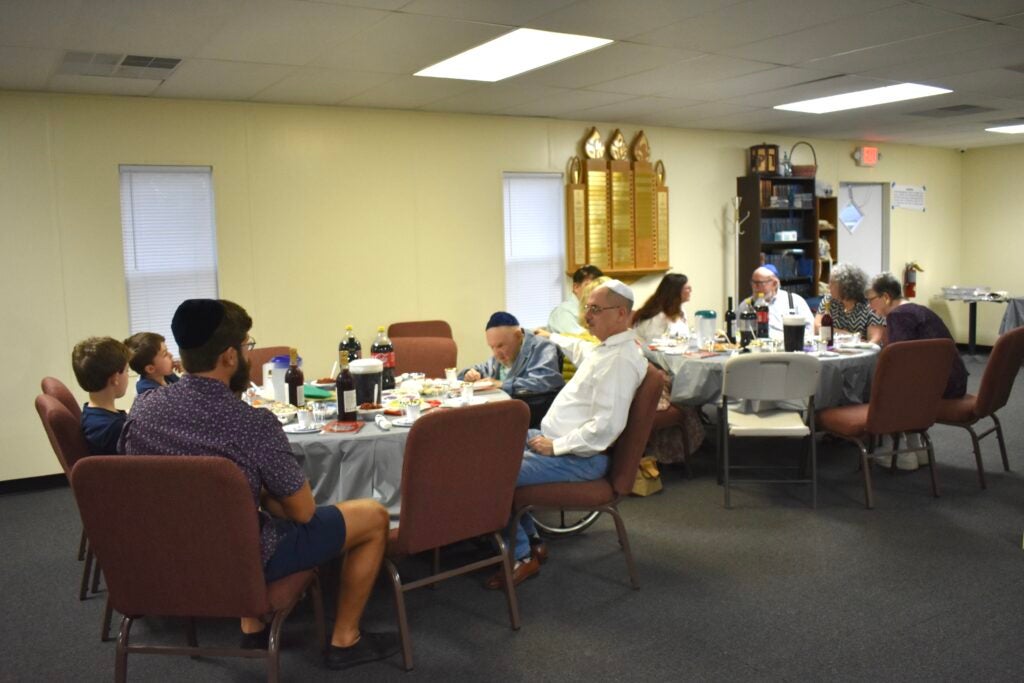
Several retired and active duty soldiers who attended the Chabad of Augusta, discussed how the Passover reminded them of their important role in protecting the country’s freedom, and how they contributed to preventing the reliving of religious persecution and slavery.
To Jonah Warshawsky, an active duty engineer stationed at Fort Gordon, the Jewish community allowed him to easily connect with new people no matter where he traveled or was reassigned.
“I think it’s an incredible opportunity to have a Jewish community regardless of my location … from there I can start building relationships and friendships, and that helps me hit the ground running in my new location. It makes me feel much more accepted right off the bat while I’m adjusting to a new spot, and figuring out a new job,” he said.
Since Seder is a rather lengthy and complicated meal, averaging around four or more hours, Warshawsky also said he was grateful to have someone lead, and host Passover to make it easier for him to continue participating in his faith.
“You can see the education the Rabbi provides as a spiritual leader, and [Seder] is something I cannot do or would struggle to do on my own,” he said. “I appreciate having the guidance and other people.”
Although Passover Seder is typically performed at home by many families, Hannah Rolle, who is originally from the Bahamas and was celebrating her first official Passover in the U.S., said she had always preferred community ceremonies instead, because they allowed her to meet more people.
“I remember, one year, I sat right next to this girl in school I didn’t know. I sat by her everyday for three months, and we never really spoke a word to each other,” she said. “Then I found out at Passover that she was a friend of my best friend, and I just never knew we had mutual friends. After that she and I became really good friends too, but that never would have happened had it not been for the synagogue’s meal.”
Like many Jewish children, in addition to eating her favorite foods during the holiday, Rolle said she had many fond memories connected to Passover.
MORE: Column: Title IX changes and Trans trends could collide with Augusta National
“Sometimes after Passover, if my friends and family were too tired or had too much to drink, all the girls would stay over at a nearby friend’s house that was walking distance from the synagogue, and all the boys would stay over at another house,” she said. “It was just a big, fun sleepover. I like having those memories.”
At the end of the night, after all the songs were sung and the passages were read aloud, final prayers were said, and participants wished each other fond farewells as each took turns departing for home.
“The message of Passover is we can’t be a slave; a slave is a mentality, it’s a mind frame; so it’s important for people to understand that, with God on your side, you are free and you can be who you are meant to be,” said Fischer.
After spending over four hours together, merriment and camaraderie had filled the air, and the celebration of precious, long-remembered freedom had left a cheerful smile on each adult, child and college student’s face as the night drew to a close.
Chabad of Augusta is located at 3924 Old Furys Ferry Road in Augusta. For more information visit: https://chabadaugusta.org
Liz Wright is a staff writer covering education, lifestyle and general assignments for The Augusta Press. Reach her at liz@theaugustapress.com

